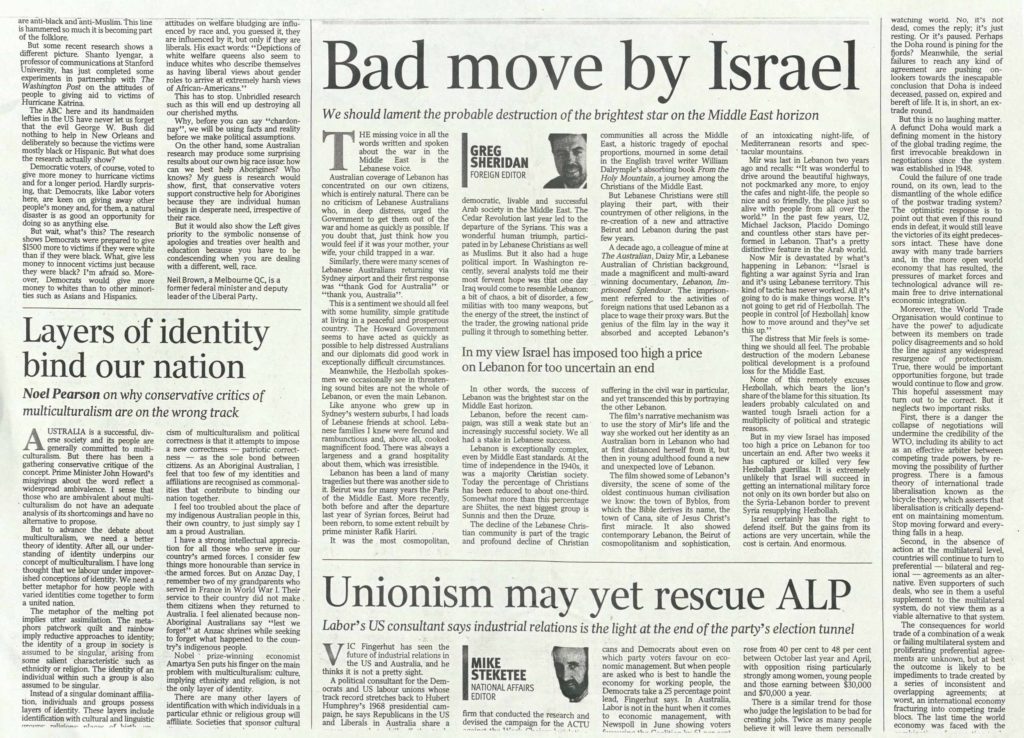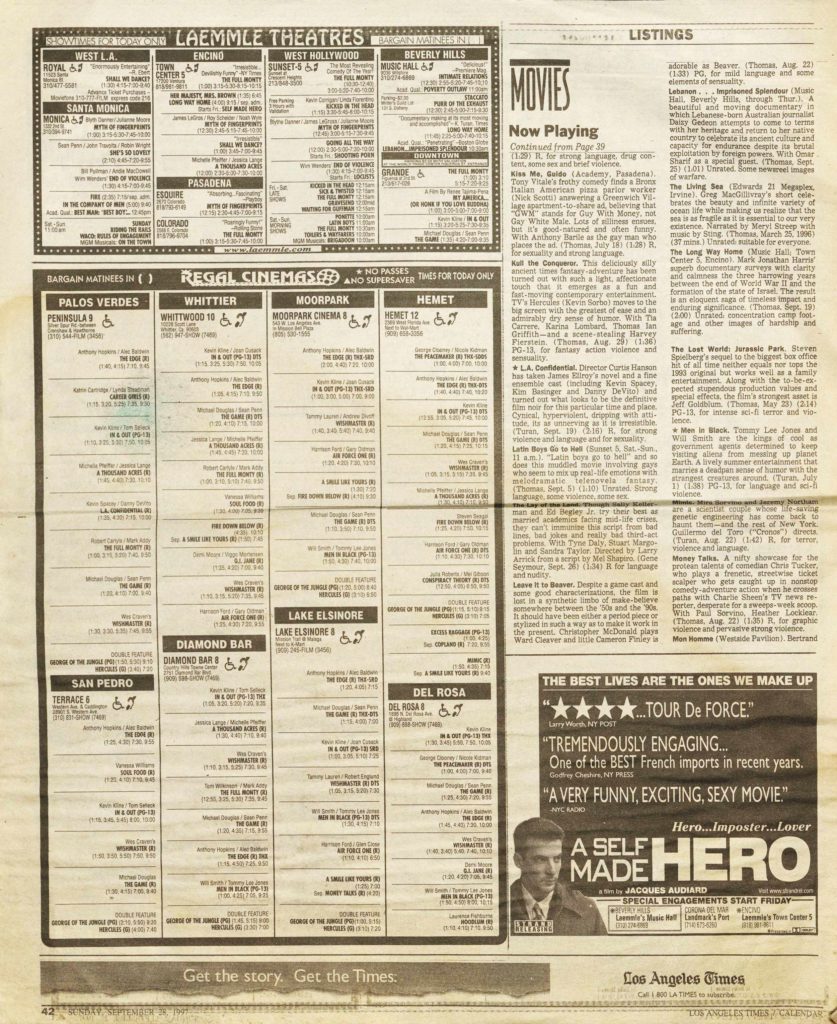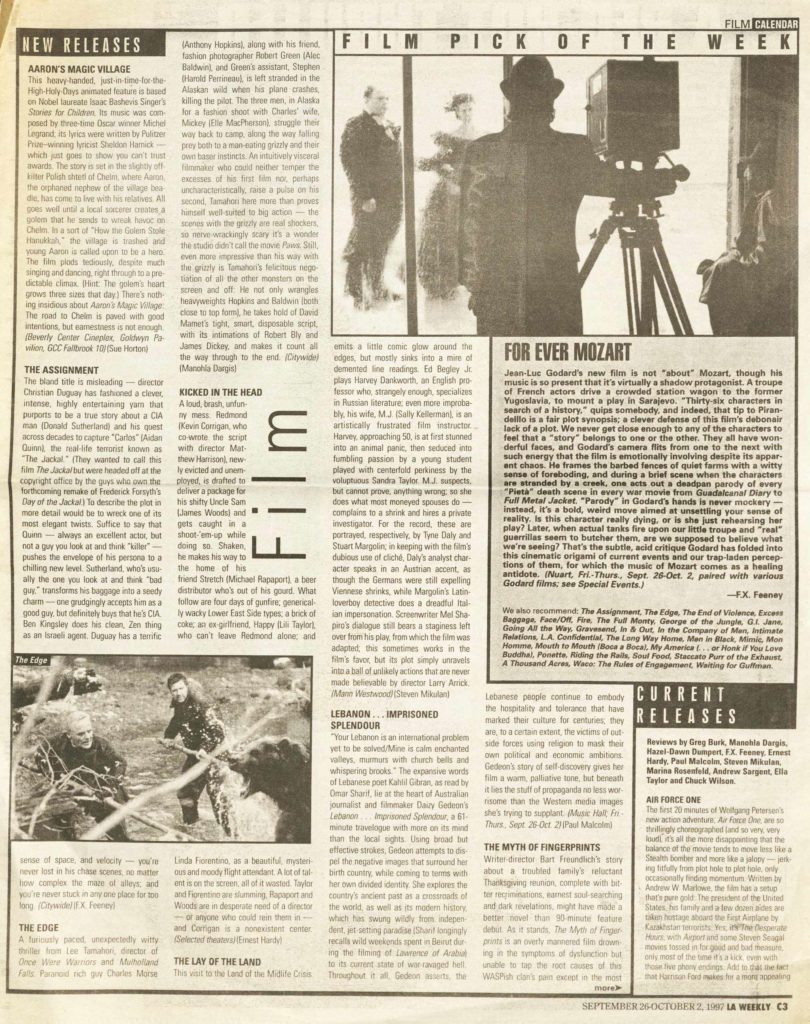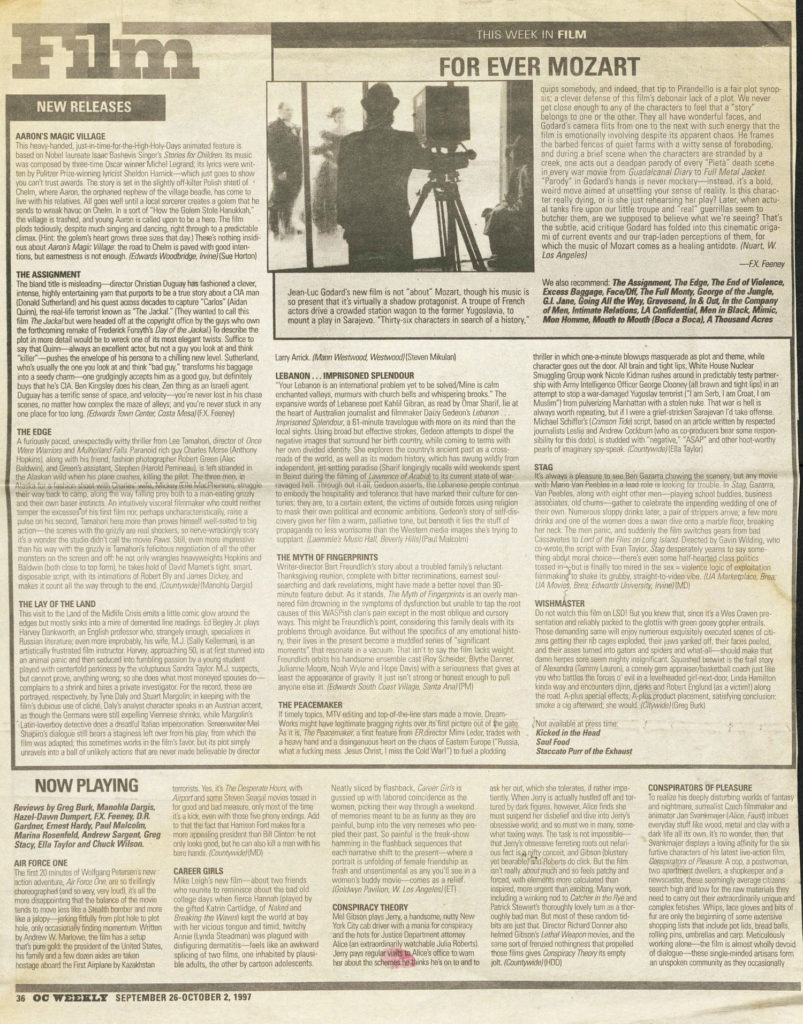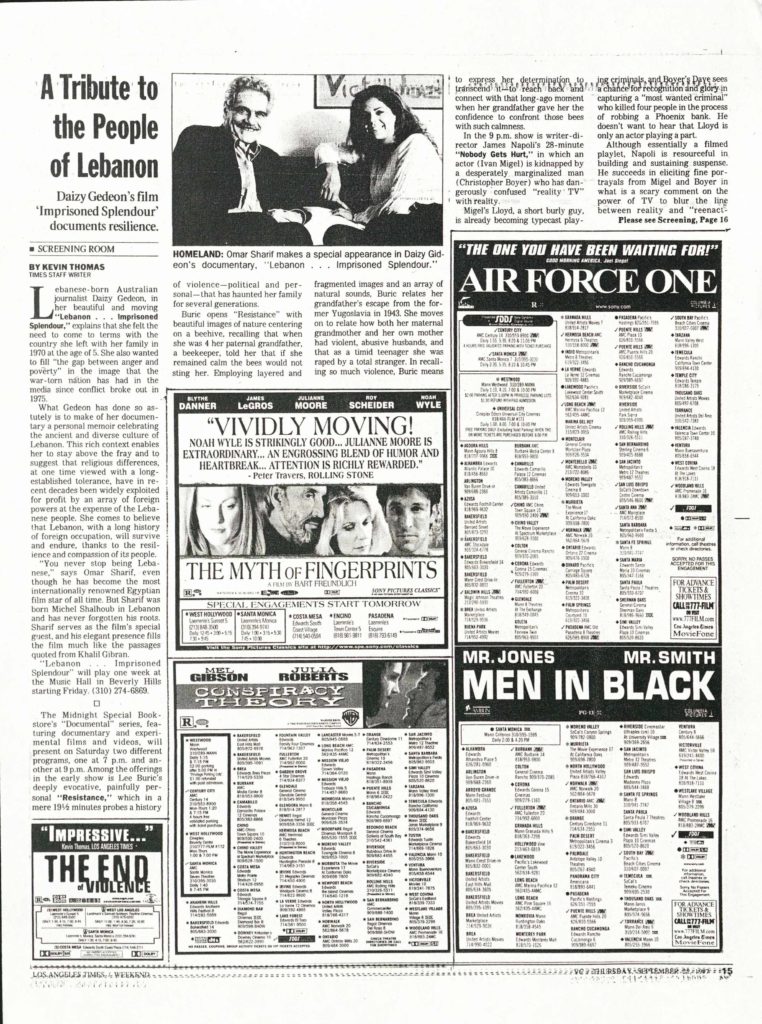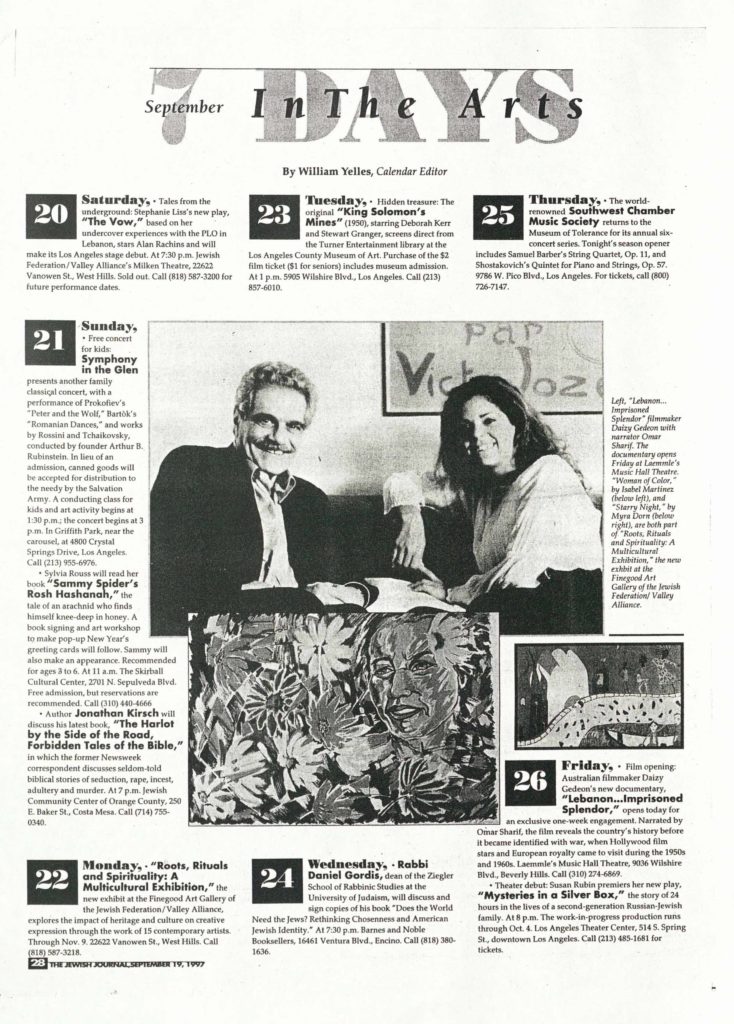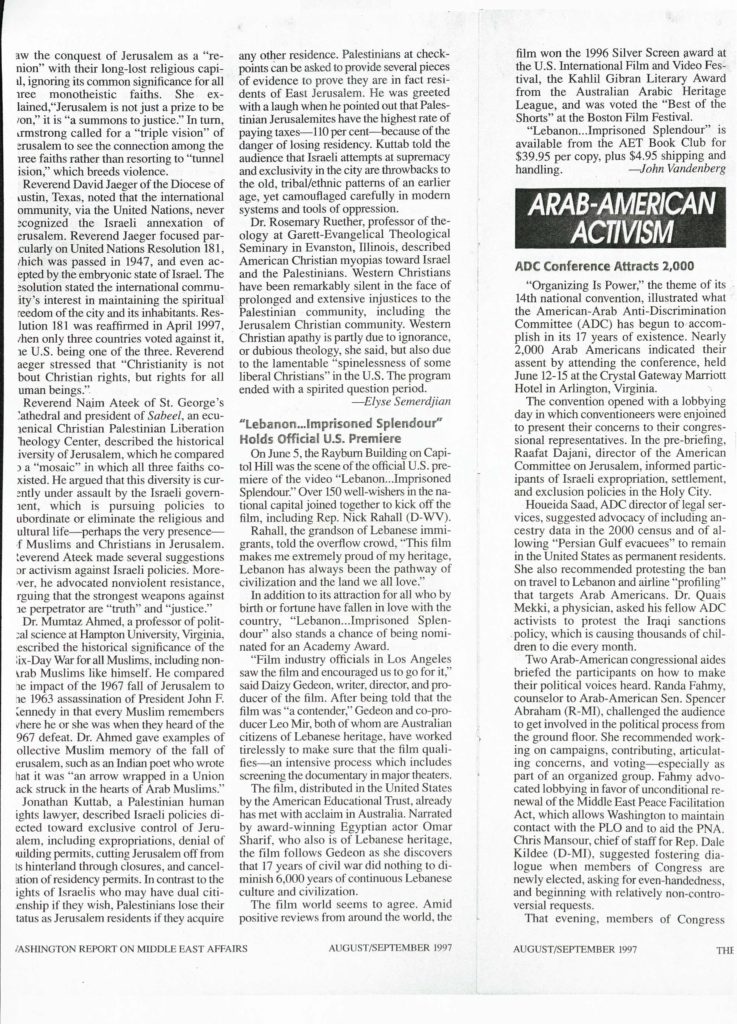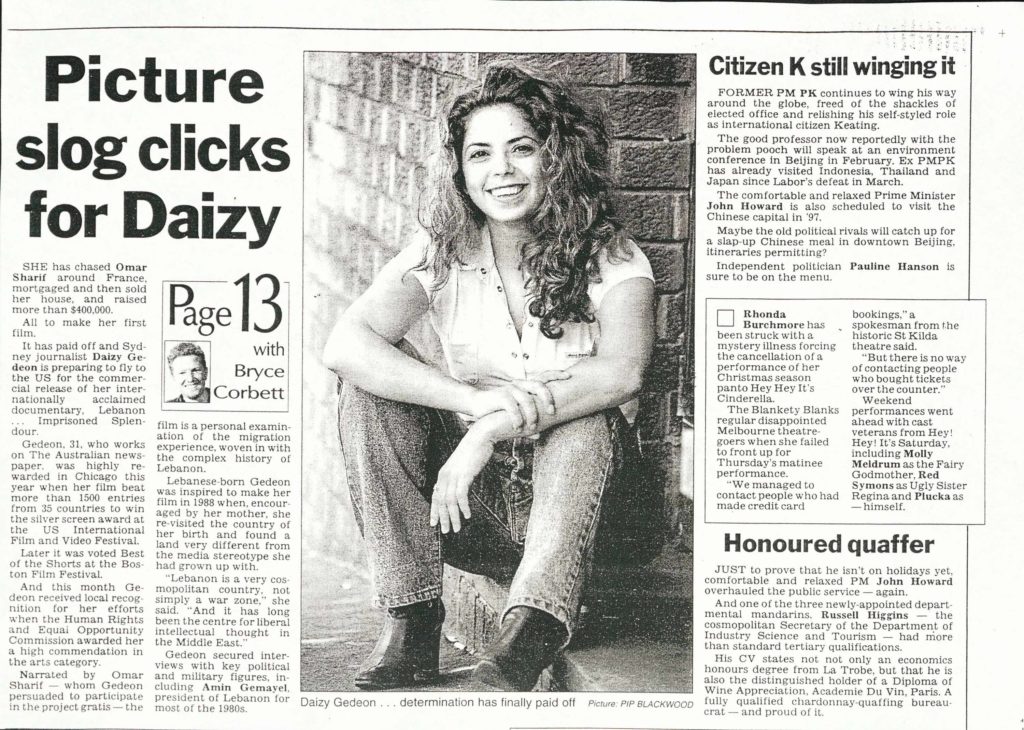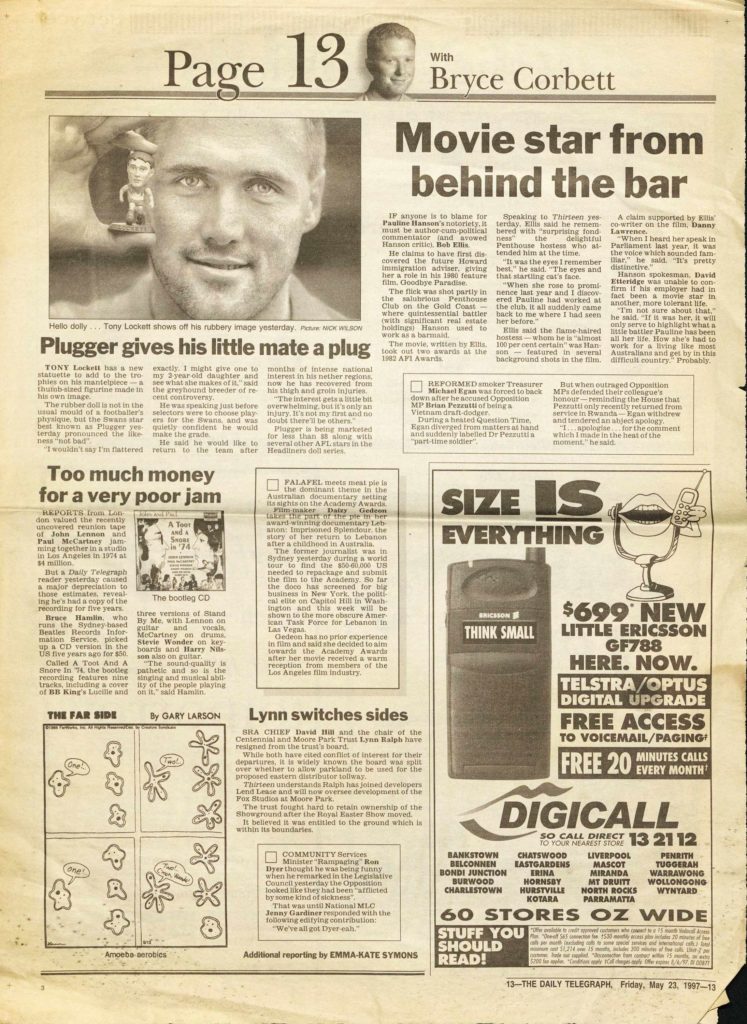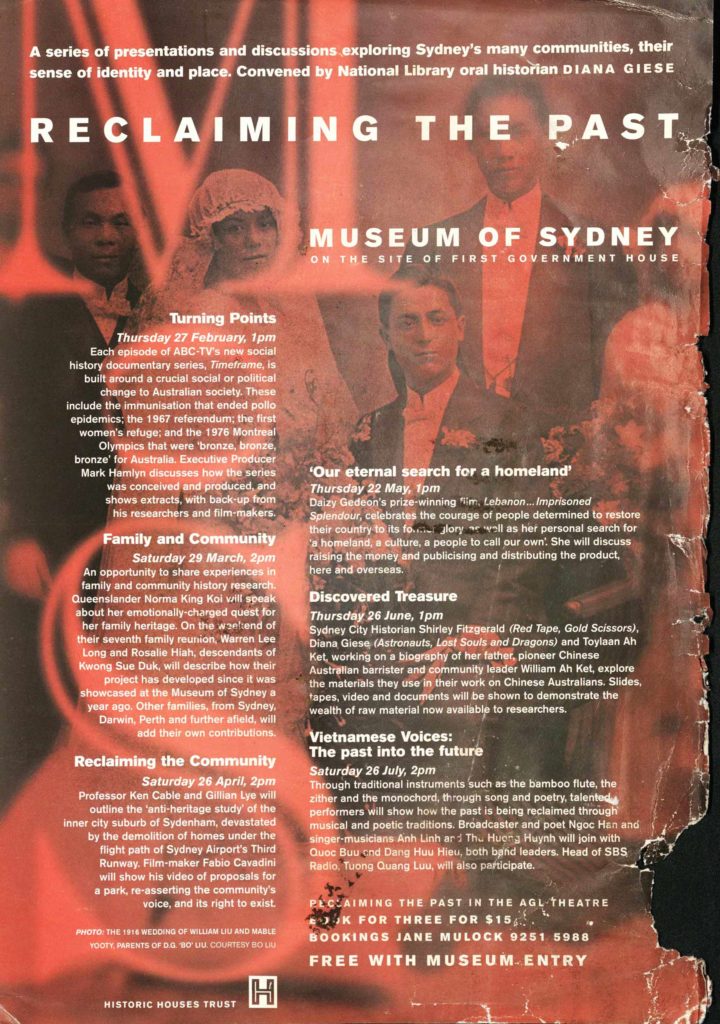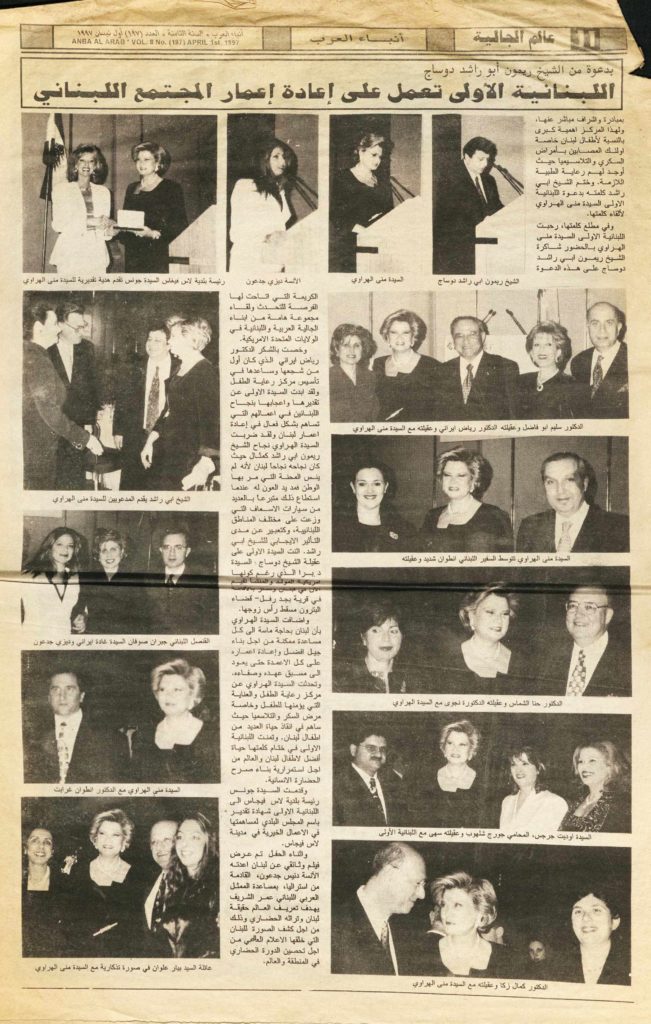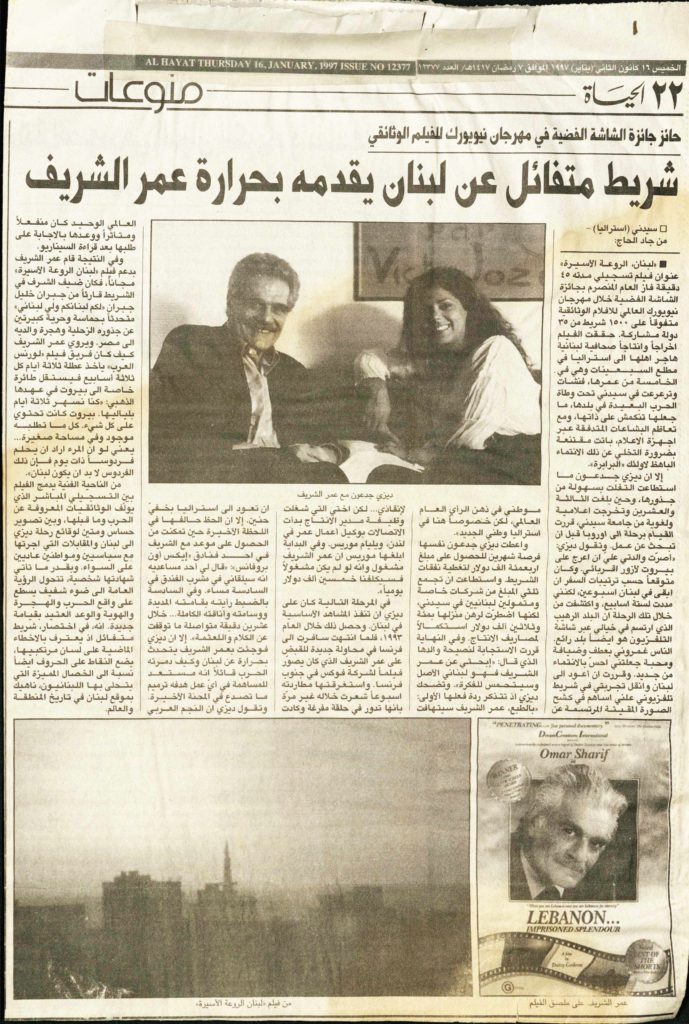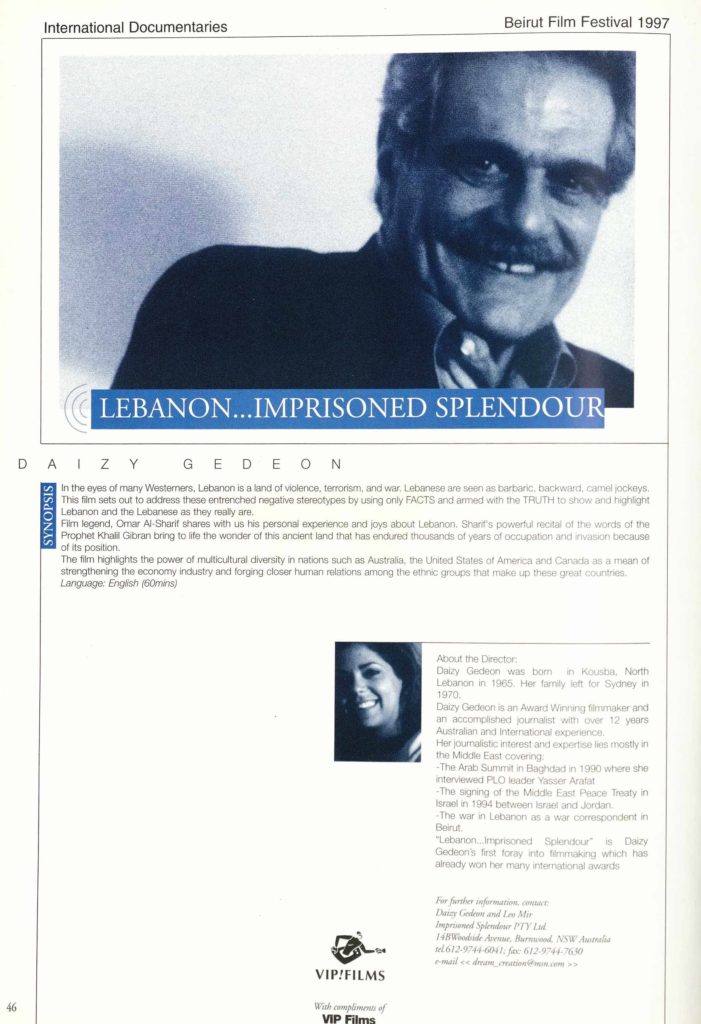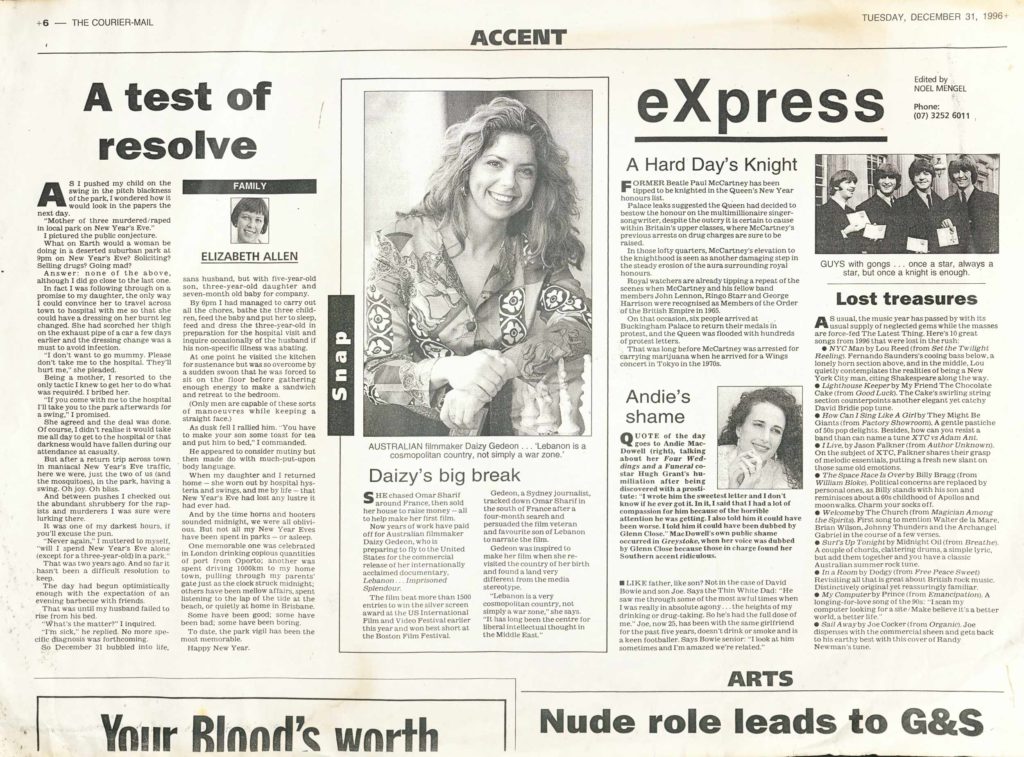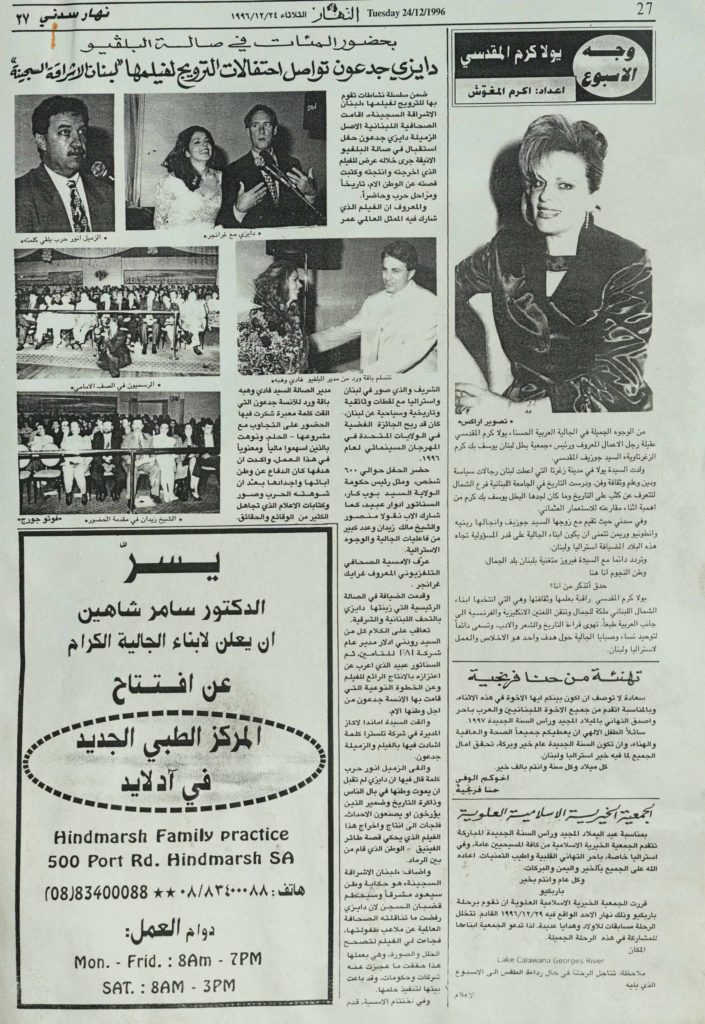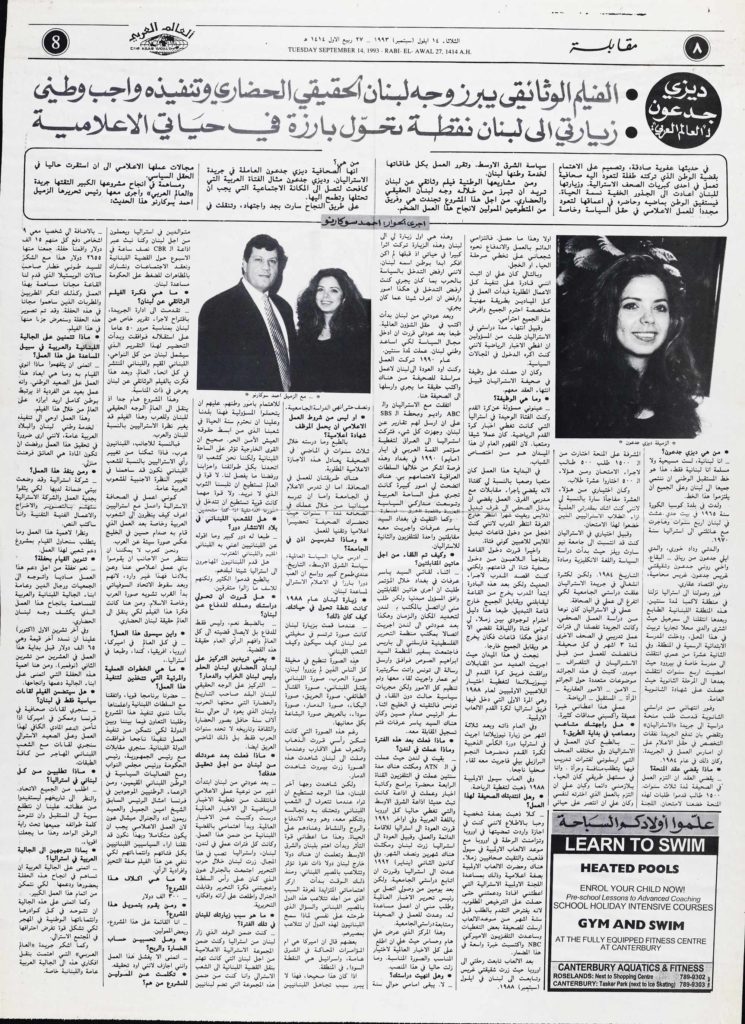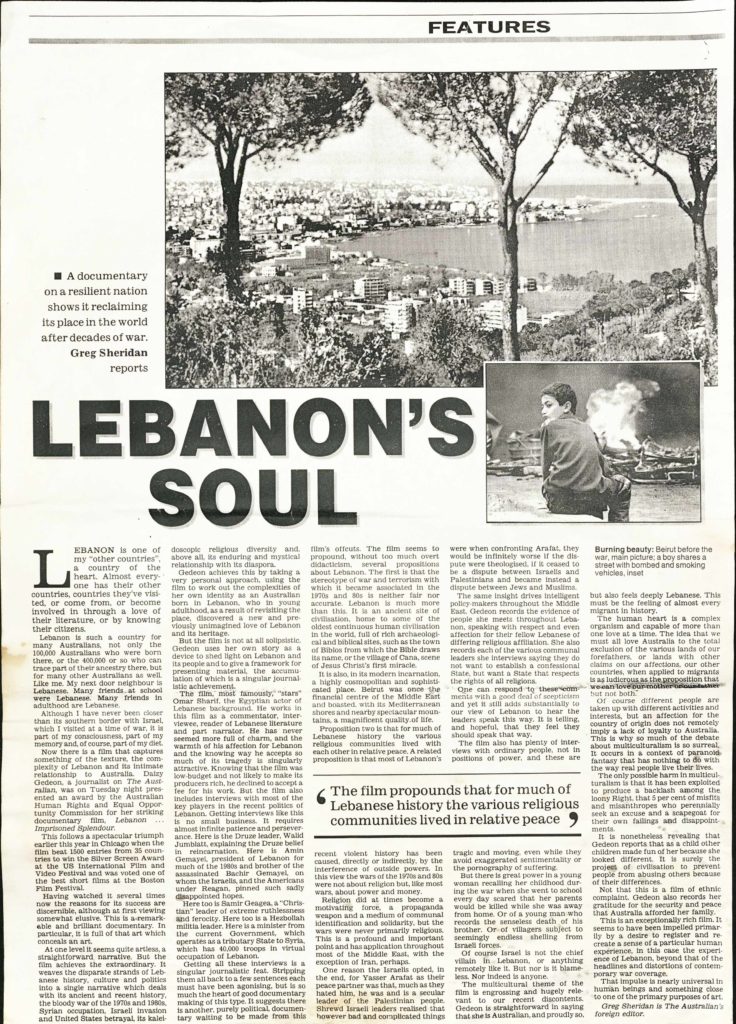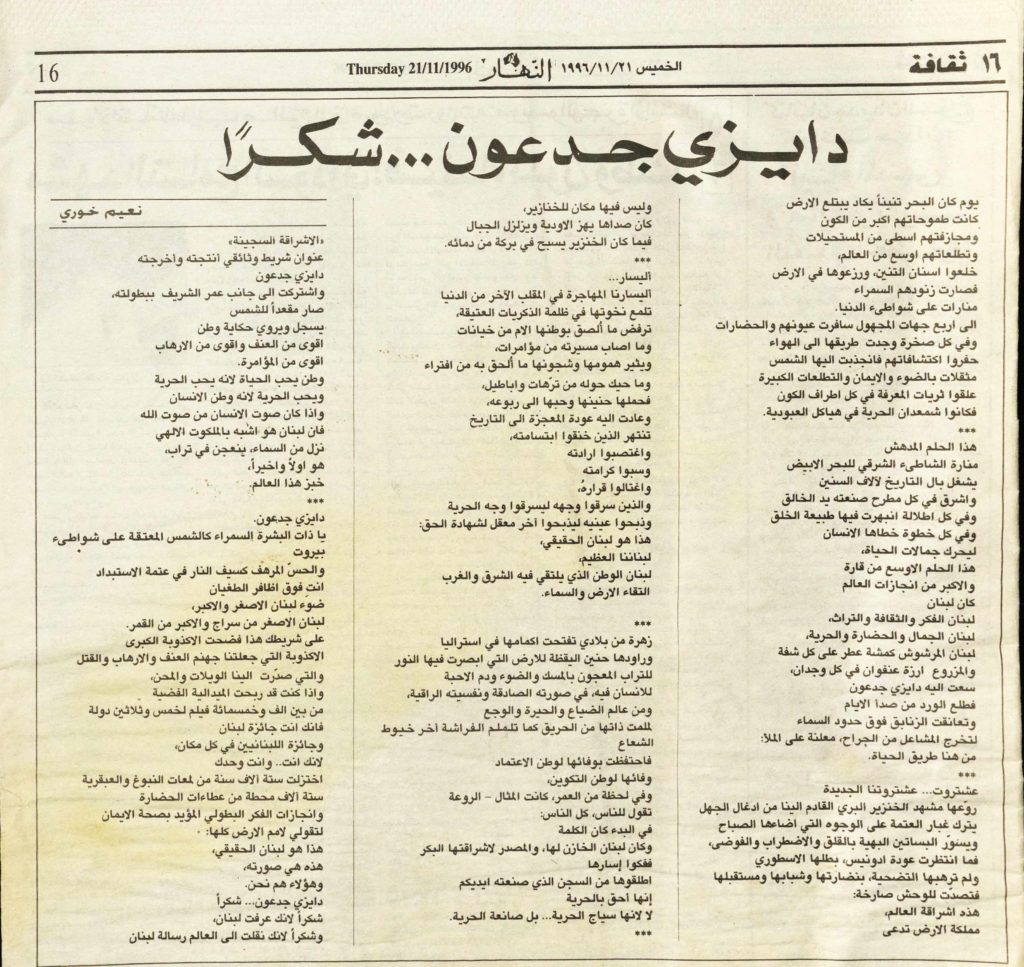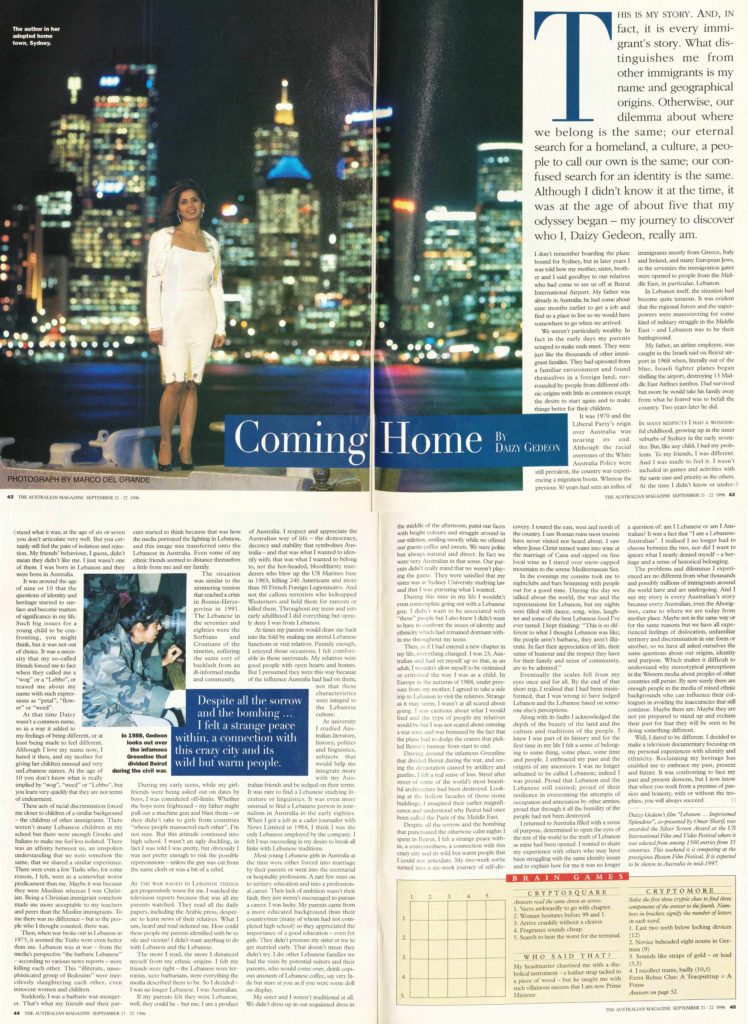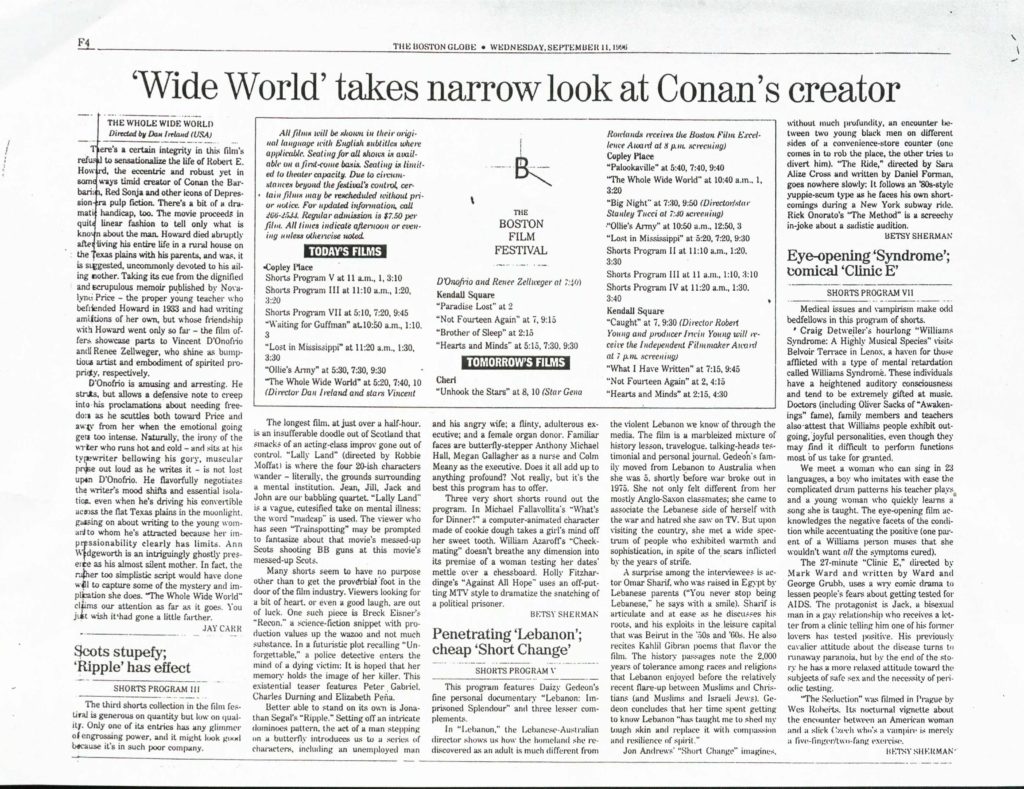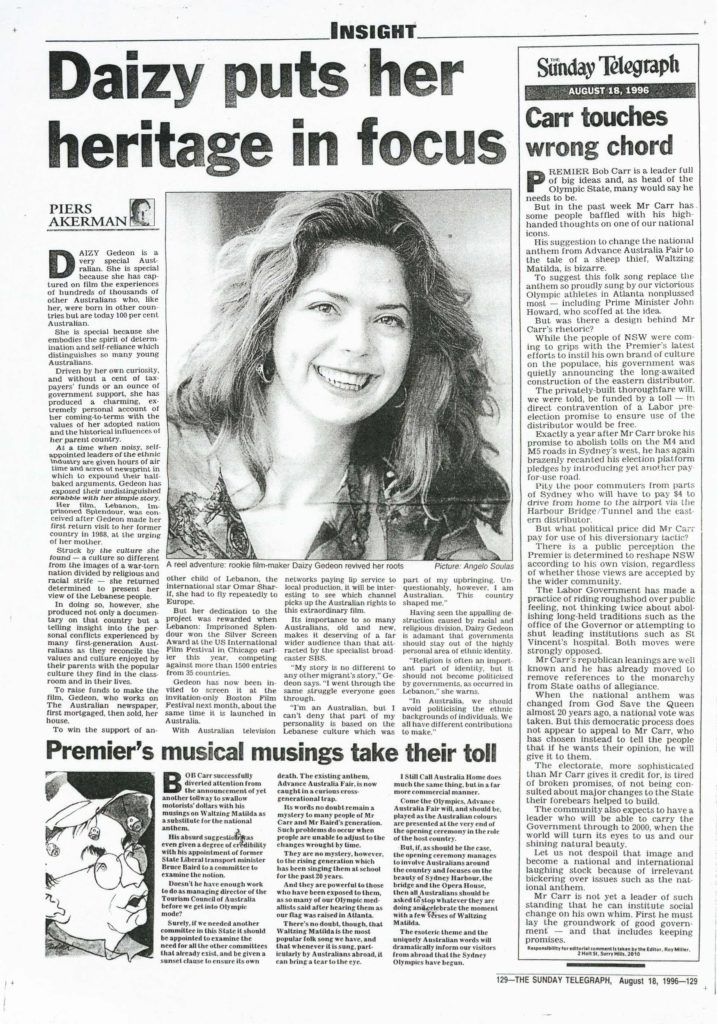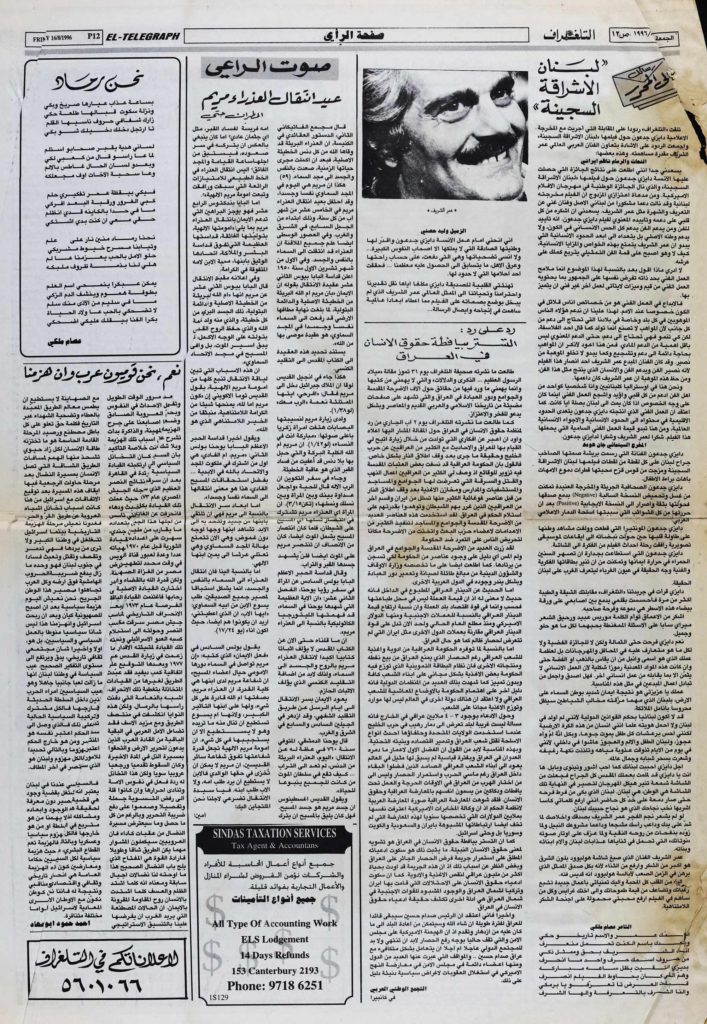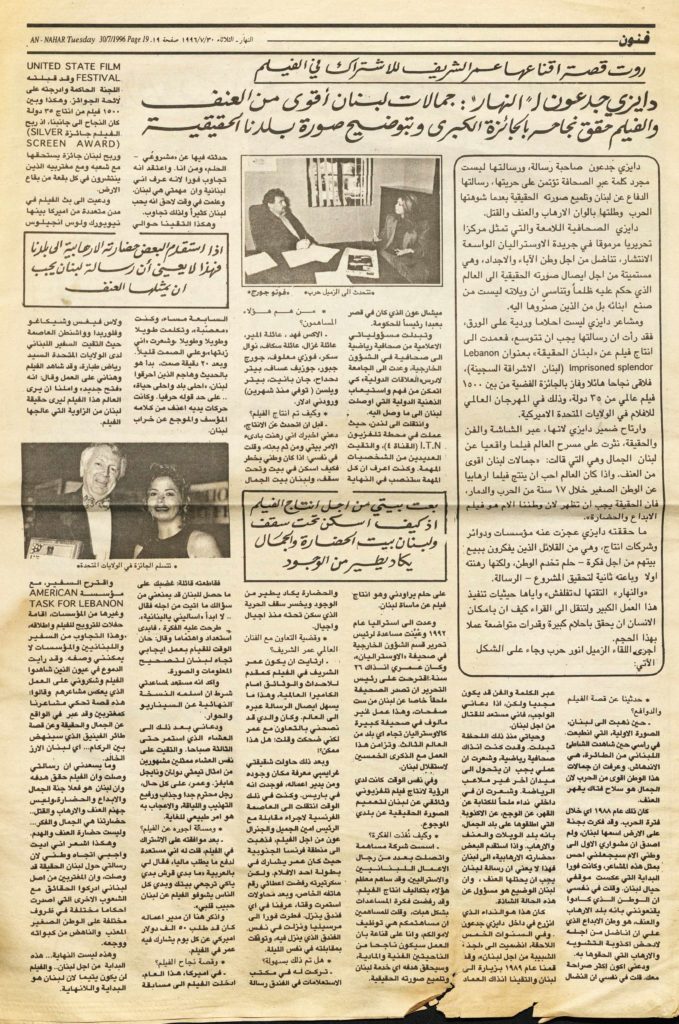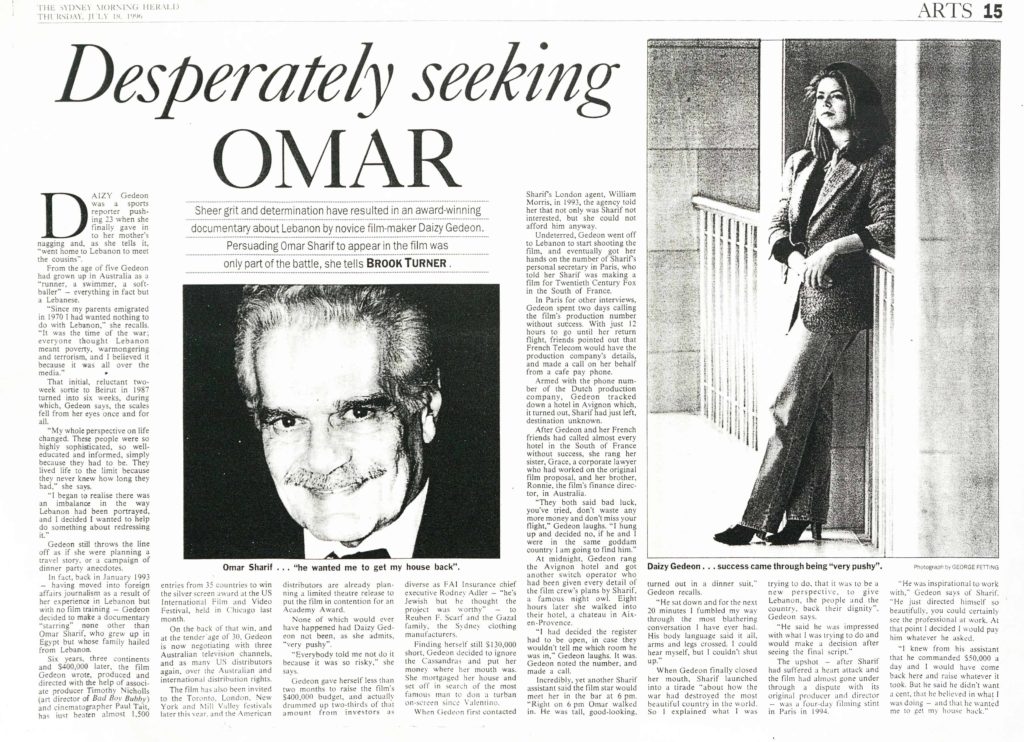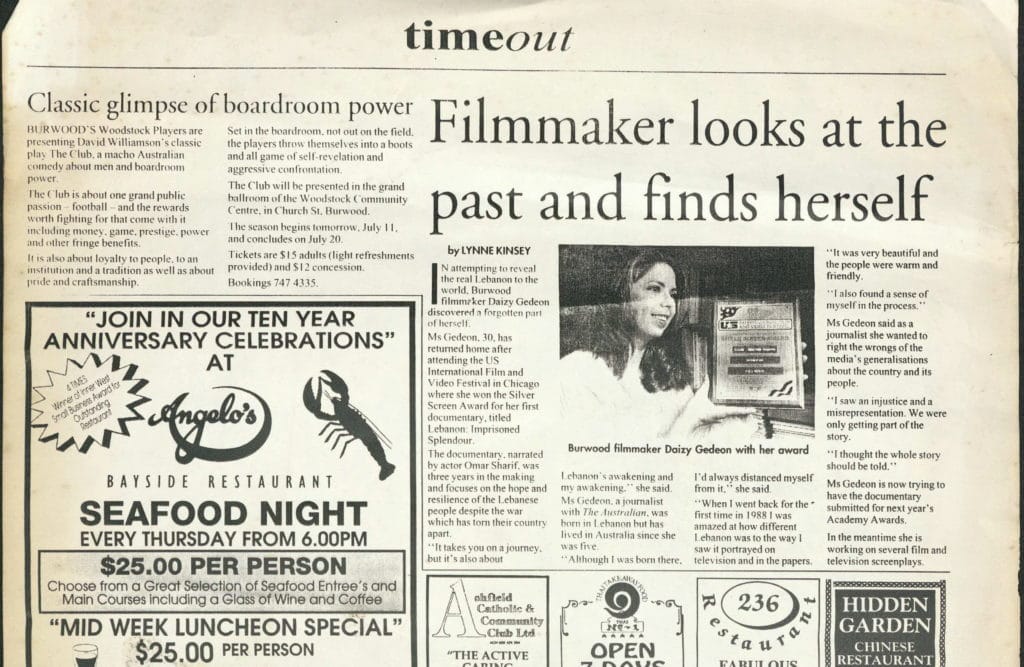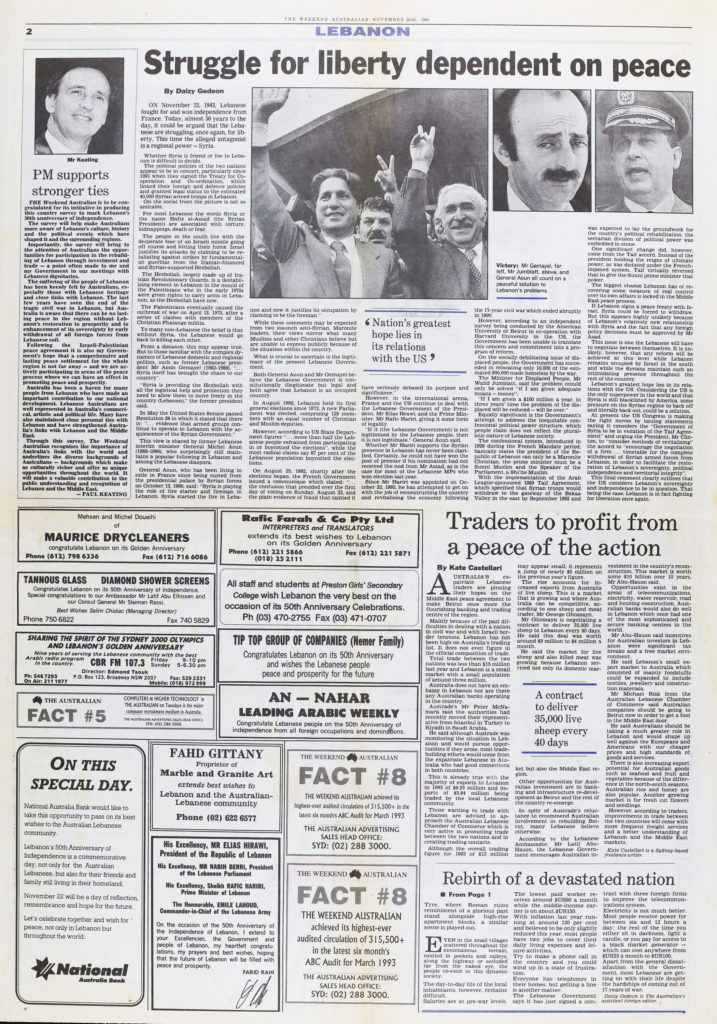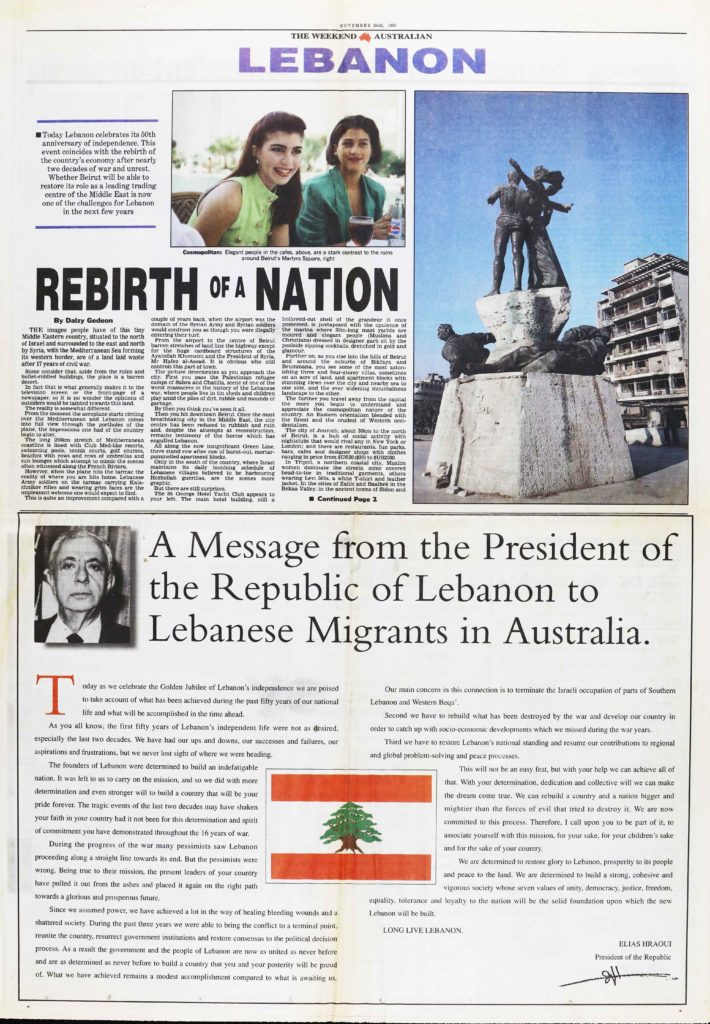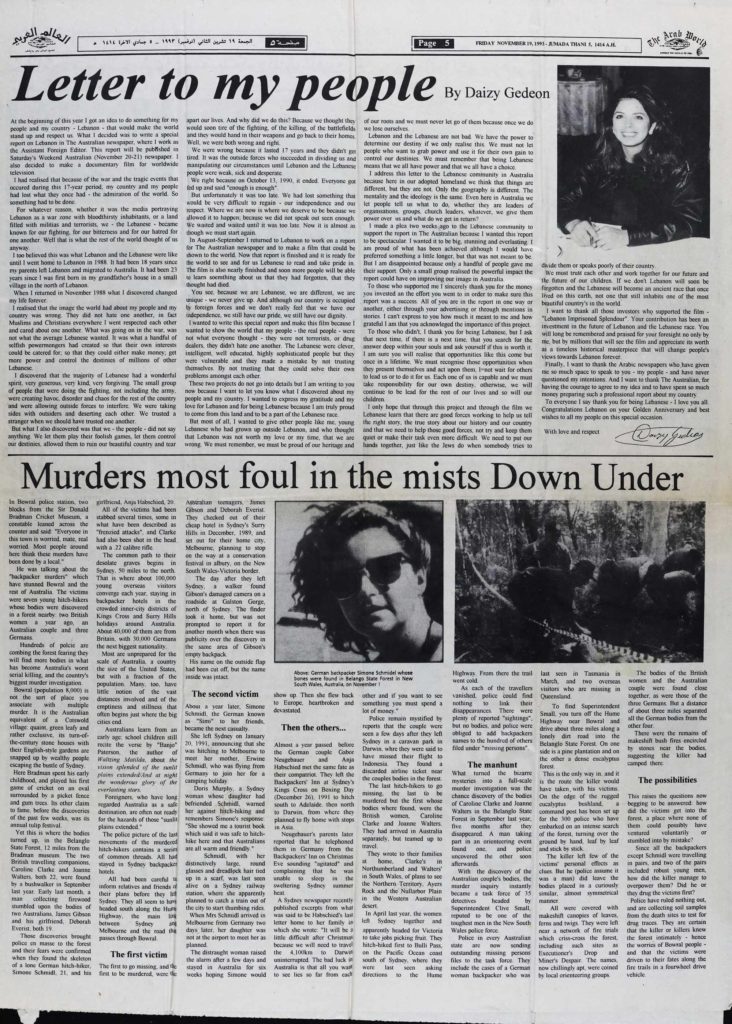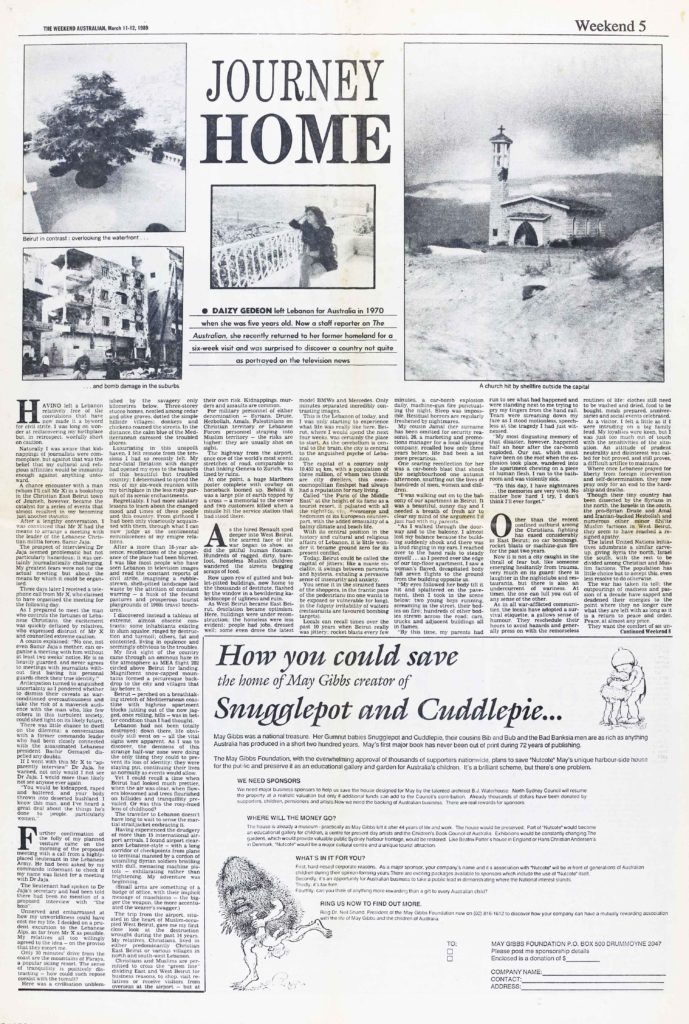Critically Acclaimed by International Media
'Remarkable and brilliant documentary' – The Australian
The unexpected international success of Lebanon...Imprisoned Splendour came largely as a result of the personal storyline of the film. Unlike typical documentaries with their authoritative, detached, report-style structure, what filmmaker, Daizy Gedeon, unwittingly achieved by telling this story through her personal witness, was to immediately, emotionally connect with the audience on a human level.
It's purpose became much more than telling a parochial, Lebanon-centric story, but interestingly, more a tale about "two cities" or, more factually, two countries and two identities and the struggle associated with those dichotomies.
* Two Countries _ the land of ones birth or heritage and ethnic origins as contrasted with the country where someone has migrated to, live, reside.
* Two Identities _ the culture, norms, traditions, rituals, language, behaviours of the country where a person or their parent's were originally from versus those that surround them and are reinforced on a daily basis in a person's adopted homeland.
These themes traverse nations, people, cultures, races and religions. They unify humanity in exposing the struggles and challenges that most people are experiencing as a result of the globalisation of our world and the fact that the last 100 years has seen the largest mass migration in human history.
The over-arching Middle East crisis subplot and associated civil war, assassinations, kidnappings, Syrian occupation, Israeli invasion and Palestinian refugee catastrophe narratives were addressed in a more factual manner. Journalists across the world, from Australia to the USA and Lebanon, picked up on these global concepts and reviewed the film favourably.
Daizy was interviewed on television, radio, featured in magazines and newspapers. Some of the most significant reports, articles and reviews included features in The Australian newspaper and the Sydney Morning Herald, reviews in the Los Angeles Times, the Boston Globe and the Washington Report on the Middle East. See selection below.

